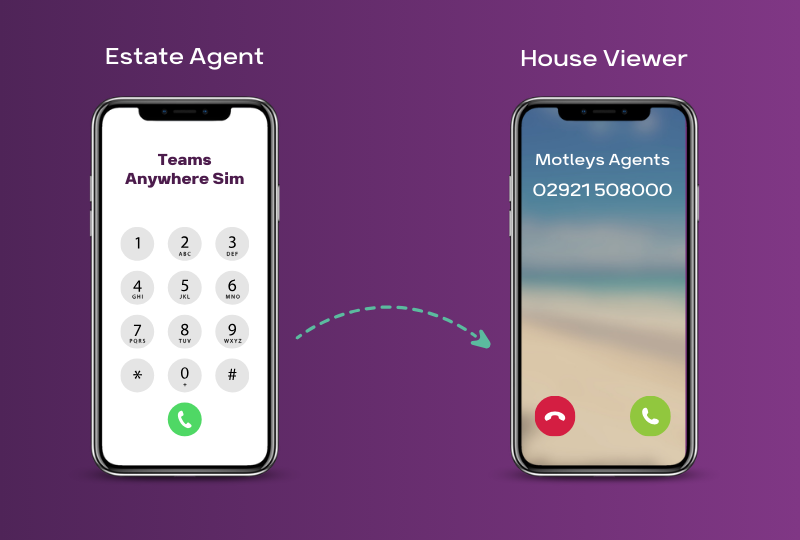
A Guide For Newbies: What Does A Managed IT Provider Do For Your Business?
A Guide For Newbies: What Does A Managed IT Provider Do For Your Business?
In today's digital-first era, technology is interwoven into the fabric of every business.
Whether you're operating a small start-up or managing a multinational corporation, the reliance on IT infrastructure, software, and digital solutions is undeniable.
Technology, however, is not without its glitches. And when it doesn’t function as it should, it can be detrimental to a business.
Keeping on top of your IT requirements is crucial for the smooth day-to-day running of your business, and this is where a managed IT provider like Flotek can support you.
What Does A Managed IT Provider Do?

Managed IT providers are professional companies that take on the responsibility of managing and maintaining a business's IT infrastructure. Their roles span a wide range:
- Continuous IT Support: Consider a situation where a business's server goes down on a Friday evening. The repercussions could be disastrous if not addressed immediately. With a managed IT provider, there's assurance of 24/7 monitoring and prompt action.
- Proactive Maintenance and Upgrades: Technology evolves rapidly. Every other day, software updates are rolled out, new vulnerabilities are discovered, and new hardware tech emerges. The managed IT provider keeps businesses abreast of these changes.
- Data Protection and Security: To illustrate the importance, think of the massive data breaches that have made headlines. A breach could tarnish a business's reputation and lead to significant financial losses. Managed IT providers take a multi-layered approach to security.
- IT Consultation and Strategy Development: Assessing the current IT setup, identifying gaps, and recommending aligned solutions.
- Cost-Effective Solutions: Identifying and implementing efficient solutions, reducing overheads, and offering scalable service models.
- Compliance and Regulatory Adherence: Ensuring IT infrastructure and practices comply with industry standards and legal requirements.
Should I Use A Managed IT Provider For My Business?
The decision to engage with a managed IT provider should be rooted in your business's specific needs. Here are some considerations:
Size and Complexity of Operations: Larger companies with complex IT needs will significantly benefit from a managed service provider (MSP). However, smaller businesses might find that a part-time IT professional suffices.
Budget Constraints: While MSPs can be cost-effective in the long run, businesses need to assess if the initial investment aligns with their budget.
Growth Projections: If you anticipate significant growth, getting an MSP on board early can ensure your IT infrastructure scales seamlessly with your business.
Industry Requirements: Businesses in sectors with stringent IT requirements or those handling sensitive data may find an MSP essential.
For more information, read our article: What is Managed IT Support And Why Does Your Business Need It?
Should I use a Managed IT Provider for My Business?
The decision to engage with a managed IT provider should be rooted in your business's specific needs. Here are some considerations:
Size and Complexity of Operations: Larger companies with complex IT needs will significantly benefit from a managed service provider (MSP). However, smaller businesses might find that a part-time IT professional suffices.
Budget Constraints: While MSPs can be cost-effective in the long run, businesses need to assess if the initial investment aligns with their budget.
Growth Projections: If you anticipate significant growth, getting an MSP on board early can ensure your IT infrastructure scales seamlessly with your business.
Industry Requirements: Businesses in sectors with stringent IT requirements or those handling sensitive data may find an MSP essential.
For more information, read our article: What is Managed IT Support And Why Does Your Business Need It?
How To Choose The Best Managed IT Provider For My Business

Choosing the right provider is crucial. Here are steps to guide your decision:
- Assess Your Needs: Before you start the search, understand what you require. Do you need comprehensive services or just specific solutions?
- Research and Recommendations: Seek recommendations from business peers and conduct thorough online research. Review testimonials and case studies.
- Check Certifications and Qualifications: Ensure that the provider has the necessary certifications and is up-to-date with the latest IT trends and solutions.
- Service Level Agreements (SLAs): Understand the terms of service, especially regarding uptime, support availability, and response times.
- Costing and Flexibility: Evaluate the pricing structure. Is it fixed, or can it be adjusted based on your needs? Can they cater to your business as it grows?
- Data Security and Compliance: Especially crucial for businesses in sensitive sectors, ensure that the MSP has robust data protection measures in place.
To guide your decision, consider:
- Experience in Your Industry: Does the provider have a track record of serving businesses in your domain? Industry-specific experience can be invaluable.
- Technological Partnerships: Top-managed IT providers often partner with leading tech companies. These alliances can be beneficial for clients in terms of access to the latest tech solutions.
- Customer Support: Beyond the SLAs, what's the feedback from their existing clients? Personalized support can make a significant difference in critical situations.
Common Myths And Misconceptions About Managed IT Providers

“It's too expensive.” When considering the costs, businesses need to factor in the long-term savings in terms of security, efficiency, and reduced downtimes.
“I have an in-house IT team, so I don't need a managed service provider.” Many businesses benefit from a co-managed IT setup, where the in-house team and the MSP work in tandem.
The Future Of Managed IT Services

The realm of managed IT services is constantly evolving.
With the rise of AI, quantum computing, and 5G, businesses will face new challenges and opportunities.
Managed IT providers will play a pivotal role in helping businesses navigate these tech waters, ensuring they leverage the best of what's available to achieve their goals.
Our Final Word
While it's crucial to understand the present landscape of managed IT services, businesses must also keep an eye on the horizon.
With the right managed IT partner, they can confidently stride into the future, reaping the benefits of tech advancements while mitigating associated risks.
To talk to us about how we can help support your IT requirements, get in touch.
Read more: What Is Managed IT Support And Why Does Your Business Need It?






.jpg)



























.avif)




%20(1).avif)
.avif)
.avif)
.avif)








.avif)
.avif)
%20(1).avif)
.avif)
.avif)